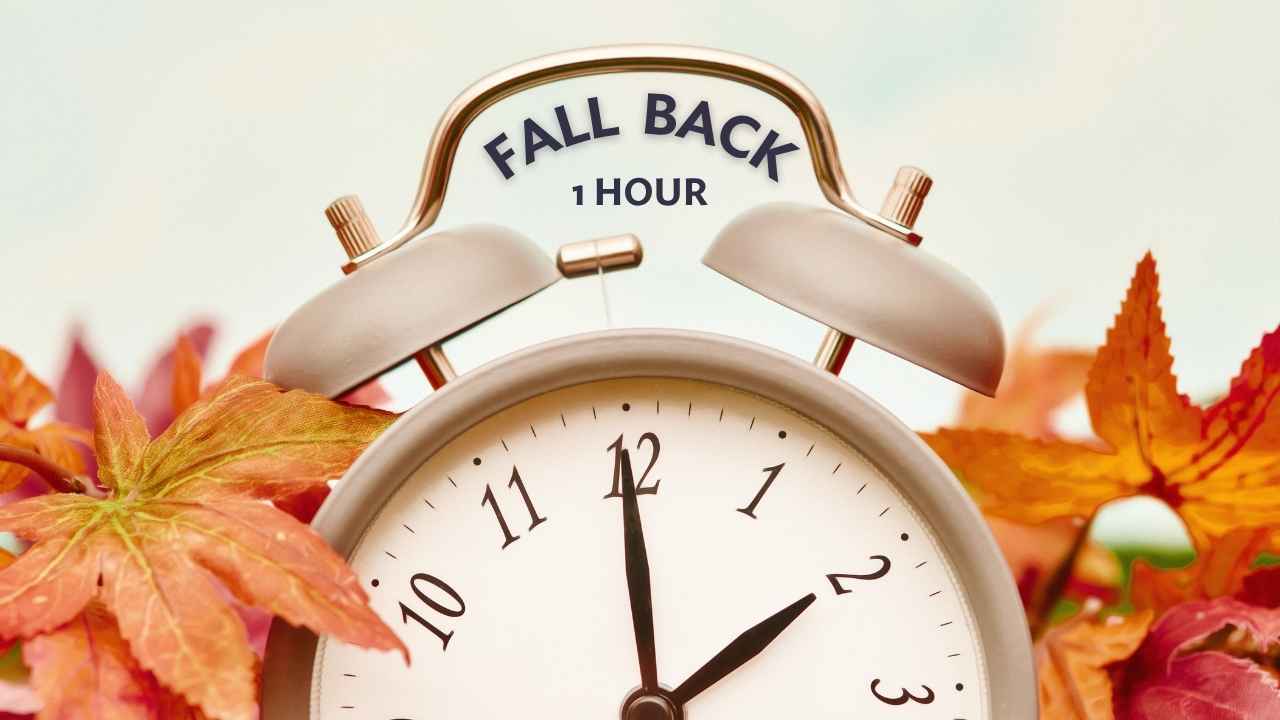Helping Seniors Adjust When We Fall Back This November

Author: Jonathan Marsh
On Sunday, November 2, 2025, at exactly 2:00 a.m., clocks in Florida will “fall back” one hour, marking the end of Daylight Saving Time. While gaining an extra hour may sound like a treat, for many older people, this shift in time zone can disrupt routine and affect quality of life in unexpected ways.
Even small changes in time of day can affect a senior’s sleep schedule, mood, and sense of balance. That’s why a little preparation and a few thoughtful caregiving tips for seniors can go a long way in helping older adults adjust comfortably and safely.
Why the Time Change Matters for Seniors
As we age, our bodies are more sensitive to even small shifts in daily routine. The end of Daylight Saving Time — also known as the seniors' fall back time change — can cause:
- Sleep disruptions and difficulty staying asleep or trying to fall asleep
- Increased confusion or irritability, especially for those with Alzheimer’s disease
- Changes in appetite or medication timing due to the altered time of day
- Higher risk of accidents or injuries, as early evening darkness may increase the risk of falls
- Feelings of loneliness or disorientation due to the time change and seniors' lives being thrown off balance
These subtle impacts make it important to prepare in advance.
1. Start the Transition Early
Begin adjusting your loved one’s sleep schedule a few days before the clock change. Shift bedtime, wake-up time, meals, and even medication times by 10–15 minutes each day. Gradual change helps reduce sleep changes in seniors and supports good sleep quality.
2. Keep the Routine Consistent
Consistency helps manage anxiety and confusion. Stick to regular wake-up, meal, and bedtime routines. For older people, a steady schedule can support their emotional and physical well-being, minimizing the effect of sleep disruptions caused by the time change and seniors' sensitivity to it. This is where home care can make a big difference, ensuring routines stay on track even when family members are unavailable.
3. Maximize Natural Light Exposure
Exposure to morning light helps reset the body’s internal clock. Encouraging outdoor time or opening curtains to welcome sunlight can improve sleep, boost mood, and make it easier to fall asleep later. This small action has a significant impact on seniors’ lives and quality of life.
4. Prepare for Earlier Darkness
With earlier sunsets, seniors may feel tired, sleep deprived, or withdrawn. Brighten the home earlier in the day and install night lights to enhance safety. These steps are key to reducing confusion, especially for those with health conditions like Alzheimer’s disease or mobility issues that may increase the risk of falls.
5. Double-Check Medication Schedules
The time change and seniors' reliance on routine medication times don’t always align. Confirm with a doctor or pharmacist that medication times remain accurate post-change, especially for meds affecting health conditions like blood pressure or insulin. Proper timing helps maintain balance and avoid disruptions that can reduce quality of life.
6. Watch for Mood Changes
With the end of Daylight Saving Time, some may experience Seasonal Affective Disorder (SAD) or general emotional dips. These are often worsened by sleep changes in seniors. Look for signs of sadness, isolation, or sleep difficulties. Light therapy, music, puzzles, or phone calls from loved ones can help brighten the mood.
7. Offer Reassurance and Patience
Changes in routine can be stressful for seniors, especially those with cognitive decline or chronic health conditions. Be gentle, reassuring, and observant. Maintaining good sleep and familiar routines helps reduce anxiety and promote comfort during this senior's fall back time change period.
8. Don’t Forget to Update Appliance Clocks
Many seniors rely on appliance clocks to keep track of their day. If these are off by an hour, it can cause confusion with meals, medications, or bedtime. After we observe Daylight Saving Time ending, update clocks on:
- Microwaves and ovens
- Coffee makers with timers
- Wall clocks and wristwatches
- Alarm clocks and phones
- Car dashboard clocks
A friendly reminder note or caregiver support can make this simple but vital task much easier.
A Gentle Reminder for Caregivers
As a caregiver, your wellness is just as important. The seniors' fall back time change can affect your own sleep and routine, too. If you're feeling sleep deprived or emotionally drained, take steps for stress relief and seek support.
Let’s Help Seniors Fall Back Safely
A one-hour time shift may feel minor to some, but for older people, it can feel much bigger. By planning ahead, being observant, and offering a little extra care, you can support a better quality of life, safety, and good sleep as we observe Daylight Saving Time ending this November.
